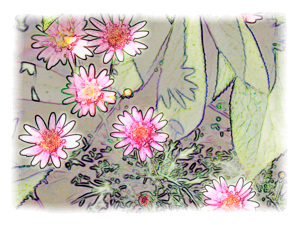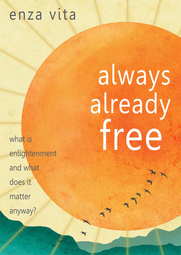 Part 11 of the New Book Serialization!
Part 11 of the New Book Serialization!
The second dialog between the sage Vasishta and the Dreamer begins.
The dreamer asks about the difference between an avatar and a lunatic and Vasishta explains that the Absolute never assumes name and form.

 Part 11 of the New Book Serialization!
Part 11 of the New Book Serialization!
The second dialog between the sage Vasishta and the Dreamer begins.
The dreamer asks about the difference between an avatar and a lunatic and Vasishta explains that the Absolute never assumes name and form.

Living from the Heart – Nirmala
Extract – ‘Love is for Giving‘.
Note that the Part 2 of the book may also be downloaded from Nirmala’s website.
Part 8 of the serialization of the presentation (compiled by R. B. Athreya from the lectures given by Swami Paramarthananda) of upadesha sAhasrI. This is the prakaraNa grantha which is agreed by most experts to have been written by Shankara himself and is an elaborate unfoldment of the essence of Advaita.
Subscribers to Advaita Vision are also offered special rates on the journal and on books published by Tattvaloka. See the full introduction and part 1 of the new series.

Here is Part 3 of a new, short series (5 parts) on the Mandukya Upanishad, from James Swartz.
This part asks the question ‘Who am I?’, examines the nature of upAdhi-s and describes a practical technique for meditation.
(Sorry I have run out of frog photos…)

Part 9 of the New Book Serialization!
The Sage tells the dreamer about the various levels or stages that he must pass through (i.e. his knowledge and understanding must progress) on the ‘path’ to jIvanmukti.

Here is a short poem, contributed by Ananda Wood (a direct disciple of Sri Atmananda Krishna Menon) and inspired by the book Philosophy of a Biologist by J.S. Haldane.
Here is what he says to introduce the poem:
I recently came across a book by J.S. Haldane, called Philosophy of a Biologist. I found it interesting because of its approach through reflective enquiry. In particular, I was interested by Haldane’s account of Western Philosophy from Descartes and Spinoza onward.
In particular, Haldane discusses philosophical questions progressively: in relation to Physical Science (Ch. I), Biology (Ch. II), Psychology (Ch. III), Religion (Ch. IV). And he concludes with a short chapter called Retrospect, where he approaches God as the inmost spirit of a universal personality. This is done in much the same way as the purusha-prakriti duality is used by Shri Shankara to investigate beyond all “knower-known” or “subject-object” duality.
This led me to write a piece of verse called Scientific enquiry: which tries somehow to summarize Haldane’s line of investigation. Continue reading

Recognizing Who You Are –
an extract from the forthcoming book by Enza Vita (and the offer to download the first 3 chapters).
You live in confusion and the illusion of things. There is a reality. You are that reality.
When you know that, you know that you are nothing, and in being nothing, are everything. That is all.
— Kalu Rinpoche
 Here is Part 2 of a new, short series (5 or 6 parts) on the Mandukya Upanishad, from James Swartz.
Here is Part 2 of a new, short series (5 or 6 parts) on the Mandukya Upanishad, from James Swartz.
This part introduces us to the three ‘experiencing entities’ – the waker, dreamer and deep-sleeper and to the distinction between microcosmic and macrocosmic.
Part 6 of the serialization of the presentation (compiled by R. B. Athreya from the lectures given by Swami Paramarthananda) of upadesha sAhasrI. This is the prakaraNa grantha which is agreed by most experts to have been written by Shankara himself and is an elaborate unfoldment of the essence of Advaita.
Subscribers to Advaita Vision are also offered special rates on the journal and on books published by Tattvaloka. See the full introduction and part 1 of the new series.
 Part 8 of the New Book Serialization!
Part 8 of the New Book Serialization!
The sage Vasishta explains the working of the power of suggestion in creating both the dream world and the waking, the need for desireless ness and describes a metaphor for conceiving the nature of ultimate reality.